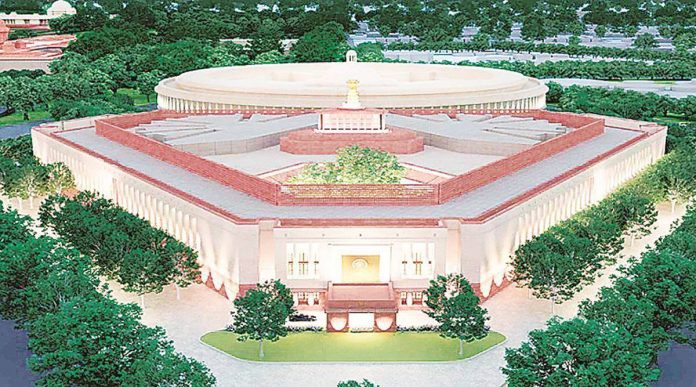In majority opinion, top court says change in land use under DDA Act is proper
The Supreme Court, in a majority judgment, on Tuesday gave the green signal for the multi-crore Central Vista redevelopment project.
The project envisages refurbishing the nation’s power corridor, which includes a new Parliament building, a common Central Secretariat and a renovated Rajpath stretching from Rashtrapati Bhavan to India Gate.
The majority opinion by Justice A.M. Khanwilkar, who headed the three-judge Bench, and Justice Dinesh Maheshwari said the change in land use under the Delhi Development Authority Act in the restricted zone was just and proper. Both judges upheld the exercise of power by the Centre to change the land use of the Master Plan 2021. The court did not find any infirmity in the grant of approval by the Central Vista Committee or the Heritage Conservation Committee.
The judges said there was no need for approval at the incipient stage of a project but it should be sought when the project materialised on the ground.
However, Justice Sanjeev Khanna, the third judge on the Bench, said land use change for the project was vitiated and bad in law. He noted there was no intelligible disclosure about the project for public participation.
Justice Khanna concluded that there was no prior approval from the Heritage Conservation Committee. He found that the environment clearance was a non-speaking order and added he did not want to go into the merits of the project but directed the project to be remitted back to the Heritage Conservation Committee.
Justice Khanna agreed with the majority opinion on the aspect of notice inviting bids for the project.
Being numerically superior, the opinion of Justices Khanwilkar and Maheshwari stands.
Justice Khanwilkar, who authored the majority opinion, said smog guns and towers should be installed mandatorily at the project site. The court also directed the Environment Ministry to order the setting up of the facilities for future projects in cities with bad air quality.
The court, while reserving the case for judgment in early November 2020, had said it would examine whether the project complied with land use and environmental regulations peculiar to the area that houses the Parliament and Central Secretariat buildings.
It had also indicated that it may not fully accept submissions made by the petitioners that there was a prohibition on building new structures in the area.
On December 7, the Supreme Court allowed the foundation stone ceremony for the new Parliament building to go ahead as scheduled on December 10 after the government gave an undertaking to keep in abeyance the construction or demolition of buildings and shifting of trees in the Central Vista area and wait for the court’s verdict.
The court, on that day, expressed displeasure with the Centre for “aggressively” continuing with the construction, demolition and shifting of trees despite questions concerning the legality of the Central Vista project.
The government defended its multi-crore redevelopment plan, saying the existing Parliament building, at nearly a 100 years old, was under tremendous pressure and not a brick of heritage structures would be touched while constructing the new Parliament, Central Secretariat and various ministries.
Solicitor General Tushar Mehta, for the government, had argued that the plan was a “broad vision”, and on the practical side, it would save the public exchequer ₹1,000 crore in annual expenditure, besides improve coordination among ministries that would be housed in 10 buildings.
The petitioners, including Rajeev Suri, represented by advocate Shikhil Suri, had objected to the proposed change in land usage of Central Vista, the historical boulevard of approximately 3.5 km from Rashtrapati Bhavan to India Gate, and further to the National Stadium, a symbol of India’s historic past, its nationhood, its vibrant democracy.
“It is where living history breathes from every inch of this cherished stretch of land, where the Republic Day parade and Beating Retreat are held every year. Central Vista is an essential ingredient of our sovereignty and pride, and also where recreational space is available for enjoyment by citizens,” they had contended.


